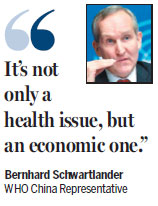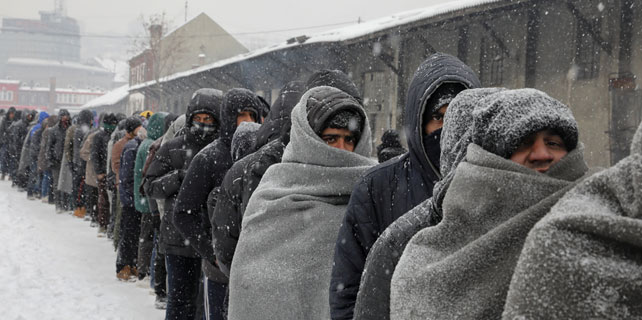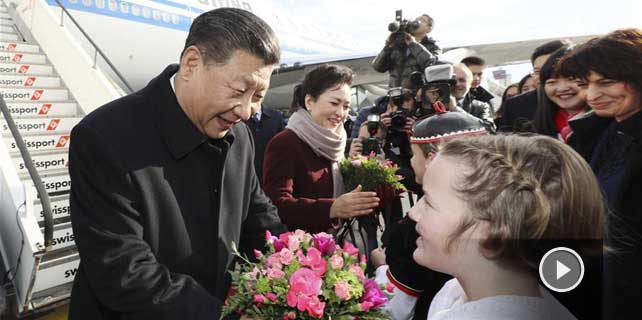WHO: Poor need protection from smog
A senior World Health Organization official has suggested that Chinese governments shoulder more responsibility in helping poor people combat the negative effects of smog.
Bernhard Schwartlander, the WHO China Representative, made the remarks in an interview with China Daily about recent bouts of heavy smog in Beijing and surrounding regions.
"The government carries the responsibility to protect people's health from hazards," he said, highlighting the plight of those poor who are unable to buy costly air purifiers.
Purifiers cost several thousand yuan each and a filter costs several hundred, reports said. Even face masks that can protect against fine particles cost at least 20 yuan ($2.95) and last only about a week in heavy smog.
Those on a reasonable income may be able to afford such costs, Schwartlander said, but governments should look into how the poor can get equal protection.

He suggested the government subsidize the purchase of air filters for impoverished households.
Previous WHO estimates have said that 3 million people die globally every year from outdoor air pollution, many of them in China.
In 2013, the UN health body's cancer research agency classified air pollution as carcinogenic to humans.
In China, the government has gradually realized the urgency of addressing the issue and has launched nationwide investigations to study the health impact of air pollution, particularly the long-term impacts.
Schwartlander spoke highly of that initiative, saying that in-depth research helps to understand the effect on the body if pollution is reduced over time.
Like smoking, the risk of developing cancer reduces over time if the smoker manages to quit, studies have found. After quitting for 10 years, the risk of cancer is half that of active smokers.
The commitment of China's top leadership to people's health, Schwartlander said, was demonstrated by the Healthy China 2030 plan, which highlights a "health-in-all policies" approach to improving people's well-being.
"We haven't seen (that strong of a commitment) in many other countries," he said. "So we hope we can engage the discussion" surrounding air pollution in that context.
"It's not only a health issue, but an economic one. And it needs strong measures to address it," he said.
Health costs and loss of productivity due to pollution are equal to between 3 percent and 6 percent of China's GDP each year, research by the World Bank and RAND Corporation estimated.
shanjuan@chinadaily.com.cn
(China Daily USA 01/17/2017 page9)
















